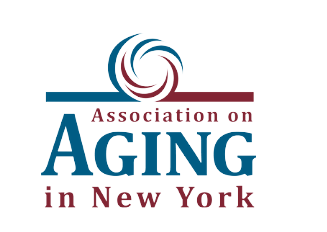
Governor Hochul’s “New Era for New York” State of the State Plan Continues a Strong Commitment to Older New Yorker’s and Their Families
Governor Hochul’s January 5th presentation of her administration’s priorities, “New Era for New York” continues her longstanding commitment and support for older residents and their families. This historic, bold and forward looking outline for policy, program and service will significantly expand economic, social and other supports and opportunities for older adults and their families to realize a brighter future.
Housing, economic security, access to care, clean environment, tax reductions all have a positive impact on older New Yorkers. Governor Hochul’s vision will be very positive for the 4.7 million older New Yorkers and the many family, friends and neighbors who provide assistance when they may need some help to maintain their independence.
Governor Hochul’s plan includes:
$10 billion in workforce investments in health care, long term care, home care and human services to increase access to services and improve outcomes while addressing health disparities.
Health care professional training to train the next generation of workers
Financial support to attract workers by reducing or eliminating student debt, providing free tuition, stipends, childcare, transportation and addressing other barriers to recruitment and retention
Credit for work experience prior to enrollment in higher education
Commitment to recruit to underserved areas
Making it easier for physicians and nurses from other states to practice in New York
Commitment to home care workforce recruitment and addressing transportation barriers
Creating a universal long term care worker to be able to provide expanded services and move easier across job openings.
Modernizing EMS systems and workforce to increase skills and capacity to help as a first responder.
Expanding the ability of existing health care workers to do more, such as provide vaccinations, flu shots and administer COVID-19 testing
Digital innovations that will provide reimbursements that are equitable for telehealth, increasing access in rural and underserved areas and providing tools that help individuals and their caregivers manage their own care better by being able to access their health care information.
Health insurance expansion by raising the eligibility for Medicaid to 138% of federal poverty and waiving the resource eligibility test for individuals who become eligible and enrolled in Medicare.
Developing a Master Plan on Aging to continue to build on New York’s historic systems reforms to build communities that create opportunities for individuals of all ages to grow up and grow old successfully.
Providing alternatives to institutional placement in nursing homes by investing in supportive housing, developing and preserving affordable housing, creating a standard definition of “memory care” so that if facility advertises itself as such, the staff have expertise in serving those with memory issues, and creating alternatives to nursing homes such as developing Greenhouse models
Combatting social isolation by expanding connectivity platforms, lifelong learning, transportation options, access to animatronic pets and providing skills training, equipment and helping to make internet access more affordable statewide
Strengthening the Long Term Care Ombudsman Program to be an advocate for residents and their families in nursing homes and other facilities.
Expanding access to addiction, suicide, mental health and domestic violence services and creating a Mental Wellness Community workforce to train lay people in mental health interventions.
Lower taxes for middle and lower income individuals
$1.2 billion to accelerate the middle class tax cut, and
$1 billion for a property tax rebate that will help 2 million New Yorkers, with higher benefits going to low-income families and older adults.
Expanding and strengthening the agricultural community to support farmers, improve the supply chain, increase access to NYS fruits and vegetables and other commodities, expanding SNAP access to Farmers Markets and to continue to fund Nourish NY to support the emergency food networks.
Protecting consumer from health care provider misinformation which results in unexpected medical bills due to the misinformation.
Lowering prescription costs through regulating Pharmacy Benefit Managers to assure savings is passed on to the consumer.
Improving critical infrastructure such as roads, bridges, downtowns, towns and hamlets, rail and other infrastructure.
Funding the 6th round of Downtown Revitalization Grants to improve the livability of downtowns and funding the revitalization of small rural communities through the “NY Forward Program”.
Investing $1 billion in affordable and statewide broadband access, with a permanent cap of $30 per month for low-income households.
Investing in a new and robust 5 year, $25 billion housing plan to create/preserve:
100,000 affordable homes in urban/rural areas
10,000 homes with support services for vulnerable populations
$300 million to preserve or build new senior housing
Improve buildings and extend affordability
Pilot projects for affordable housing innovation and new approaches to construction
Rural housing to preserve and improve multi-family rentals
Preserve and invest in manufactured and mobile home stock
Provide financing for accessible and affordable manufactured homes
Encourage accessory dwelling units by changing land use restrictions allowing one accessory dwelling on owner occupied residential lots.
Expanding transit oriented development to provide easier access to rail stations by building communities around those hubs.
Converting hotels and office space into affordable, residential options.
Providing eviction protection in upstate New York by funding the Eviction Prevention Legal Assistance program to provide legal representation during eviction proceedings.
Investing in clean energy, solar, wind and hydro to reduce energy costs, create jobs, address climate change and improve air quality.
Developing an extreme heat action plan for vulnerable communities.
Enhance and improve the state park system for better health.
Waiving the income cap on retired teachers to encourage them to come back to teaching to address the teacher shortage.
Making SUNY and CUNY the best in the nation including leading in adult education, lifelong learning and skills and degree enhancements including flexibility options, remote programs and lifelong learning incentives.
Additional funding and improvements to serve our states veterans, whereas 63% of our states veterans are over the age of 60.
